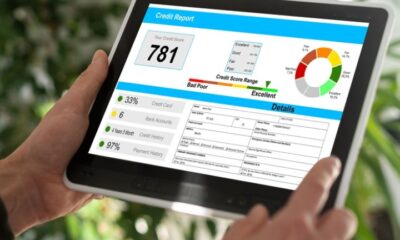
Shutterstock
Buying in bulk can seem like a great way to save money, with those big packages and tempting discounts catching your eye. But the truth is, not everything is a smart buy in large quantities. Some items can spoil, lose their effectiveness, or just end up taking valuable space in your home. While everyone’s shopping needs are different, and it’s important to do what works for you, certain items tend to be bigger money wasters when bought in bulk.
Before you load up your shopping cart, let’s talk about 22 bulk items that might actually waste your money.
Fresh Produce

Shutterstock
Buying fresh fruits and vegetables in bulk might seem economical at first glance. However, these items have a limited shelf life and can spoil quickly if not consumed promptly or canned. The result is often wasted food and money as you throw away wilted lettuce or moldy berries. To ensure freshness and reduce waste, it’s better to purchase smaller quantities that you can use within a few days.
Dairy Products

Shutterstock
Milk, cheese, and yogurt are staples in many households, but they come with expiration dates that aren’t far off. Purchasing large quantities can lead to spoilage before you have a chance to consume them all. Even with refrigeration, dairy products can develop off-flavors or harmful bacteria over time. To avoid pouring money down the drain, buy only what you can realistically use before they expire.
Spices

Shutterstock
While spices don’t necessarily “go bad,” they do lose their potency and flavor over time. Buying them in bulk might lead to a cabinet full of stale seasonings that won’t add much to your meals. This not only affects the taste of your dishes but also means you’re not getting the full value of what you paid for. It’s more cost-effective to purchase smaller amounts to keep your spices fresh and flavorful.
Cooking Oils

Shutterstock
Cooking oils, especially those rich in polyunsaturated fats like canola or vegetable oil, can become rancid if stored for too long. Rancid oils not only have an unpleasant taste but can also produce harmful free radicals when consumed. Buying large containers might seem like a good deal, but if you can’t use it all before it goes bad, you’re wasting money. Opting for smaller bottles ensures you use the oil while it’s still fresh and healthful.
Nuts and Seeds

Shutterstock
Nuts and seeds are nutritious snacks, but they contain natural oils that can spoil over time. When purchased in bulk, there’s a higher chance they will turn rancid before you can finish them. This not only affects their taste but also diminishes their nutritional benefits. To enjoy them at their best, buy smaller packages and store them properly in airtight containers.
Condiments

Shutterstock
Condiments like ketchup, mustard, and mayonnaise have expiration dates that are easy to overlook. Large bottles may take a long time to finish, during which the quality can deteriorate and bacteria can grow. Using expired condiments can pose health risks and negatively impact the taste of your food. It’s wiser to buy standard sizes to ensure you’re using them while they’re still fresh and safe.
Eggs

Shutterstock
Unless you’re cooking for a large group or running a bakery, buying eggs in bulk isn’t practical for most people. Eggs have a finite shelf life, even when stored in the refrigerator. Consuming old eggs can increase the risk of foodborne illnesses like Salmonella poisoning. To ensure safety and freshness, purchase only the quantity you can use within a few weeks.
Coffee Beans and Grounds

Shutterstock
Coffee enthusiasts know that beans and grounds start to lose their aroma and flavor soon after opening. Buying large quantities may lead to a stash of stale coffee that doesn’t provide the satisfying experience you expect. Even storing coffee in the freezer doesn’t indefinitely preserve its freshness. For the best-tasting brew, it’s advisable to buy smaller amounts more frequently.
Cosmetics and Skincare Products

Shutterstock
Makeup and skincare items have shelf lives and can become breeding grounds for bacteria over time. Purchasing these products in bulk increases the likelihood that they’ll expire before you can use them up. Using old or contaminated cosmetics can lead to skin irritation, infections, or reduced effectiveness. To protect your skin and wallet, buy only what you need and replace products as recommended.
Over-the-Counter Medications

Shutterstock
Medications like pain relievers, antihistamines, and cold remedies have expiration dates that impact their effectiveness. Stockpiling these medicines might seem like a good idea until you realize they’re no longer potent when you need them. In some cases, expired medications can even be harmful. It’s more sensible to purchase smaller quantities that you’ll use within their effective period.
Bread and Baked Goods

Shutterstock
Fresh bread, pastries, and other baked goods have short shelf lives and can quickly become stale or moldy. Buying these items in bulk often leads to waste unless you have a large family or plan to freeze them immediately. However, freezing can alter the texture and taste, diminishing the enjoyment of your baked treats. To savor freshness, buy only what you can consume within a few days.
Soda and Carbonated Beverages

Shutterstock
Bulk purchases of soda and other carbonated drinks might lose their fizz and flavor over time, especially if not stored properly. The large packs also require significant storage space, which can be inconvenient. Moreover, having an abundance might encourage increased consumption of sugary drinks, which isn’t ideal for your health. Opting for smaller quantities can help moderate intake and maintain freshness.
Bulk Bag of Snacks and Chips

Shutterstock
Snacks like chips, crackers, and popcorn can go stale quickly once their packaging is opened. Buying these items in bulk increases the likelihood that they will lose their crunch before you can finish them. Stale snacks are less enjoyable and often end up being thrown away, wasting your money. Purchasing smaller packages helps ensure that your snacks stay fresh and tasty.
Batteries

Shutterstock
Batteries have a shelf life and can lose their charge even when they’re not in use. Buying them in bulk may lead to a stockpile of batteries that are weak or dead by the time you need them. Additionally, old batteries are more prone to leaking, which can damage your devices. To ensure optimal performance, buy batteries as you need them and store them properly.
Pet Food

Shutterstock
Pet food, especially once opened, can lose its nutritional value and flavor, making it less appealing and beneficial for your pet. Bulk buying increases the risk of the food becoming stale or even spoiled before your pet can consume it all. In some cases, improper storage can lead to pest infestations or mold growth. To keep your pet healthy and happy, buy pet food in sizes appropriate for their consumption rate.
Cleaning Supplies

Shutterstock
Cleaning products can lose their effectiveness over time, particularly those that are natural or eco-friendly without strong preservatives. Buying these items in bulk might leave you with cleaners that don’t do their job properly when you finally get around to using them. Some chemicals can also become unstable or hazardous if stored for too long. It’s safer and more efficient to purchase only what you’ll use in the near future.
Frozen Foods

Shutterstock
While frozen foods have a longer shelf life than fresh items, they aren’t immune to freezer burn and flavor degradation. Overloading your freezer with bulk purchases can lead to inefficient cooling and potential spoilage. Additionally, you might grow tired of eating the same food repeatedly before you’ve used up your stock. Buying a variety of smaller portions keeps your meals interesting and your freezer organized.
Cereal

Shutterstock
Breakfast cereals can become stale or absorb moisture once their packaging is opened, losing their crunch and flavor. Purchasing cereal in bulk increases the chance that it will become unappetizing before you can finish it. This often leads to waste as you throw away the uneaten, soggy cereal. To enjoy a fresh and tasty breakfast, opt for standard-sized boxes that you can consume in a reasonable time frame.
Flour and Baking Supplies

Shutterstock
Flour, baking powder, and other baking ingredients can attract pests like weevils if stored for too long. They can also lose their leavening power and freshness, affecting the quality of your baked goods. Unless you’re a frequent baker, buying these items in bulk may result in waste and disappointing baking results. Purchasing amounts that match your baking habits ensures better performance and taste.
Personal Care Items

Shutterstock
Items such as toothpaste, shampoo, and lotions can degrade over time, especially those containing natural ingredients without strong preservatives. Bulk buying might lead to using expired products that are less effective or could cause skin irritation. Additionally, your preferences or needs might change before you use up your stockpile. Buying as needed helps ensure you’re using fresh products that suit you best.
Seasonal Items

Shutterstock
Purchasing seasonal goods like holiday decorations, themed party supplies, or seasonal clothing in bulk can lead to unnecessary clutter. Trends change, and what was appealing one year might not be the next, leaving you with outdated or unwanted items. Excess stock can occupy valuable storage space and may eventually be discarded. It’s more practical to buy only what you need for the current season or event.
Office Supplies for Home

Shutterstock
If you’re buying for your home office, items like printer ink cartridges, paper, and pens can dry out, degrade, or become obsolete over time. Bulk purchasing might leave you with supplies that you can’t use, especially if you upgrade equipment or switch to digital alternatives. Storing excess office supplies also takes up space and can lead to disorganization. Buying based on your current needs helps you stay efficient and reduces unnecessary waste.
Conclusion

Shutterstock
Being smart about your bulk purchases can make a real difference in your budget and lifestyle. It’s important to recognize that not all deals are as good as they seem, especially if the items end up unused or expired. By focusing on what you truly need and will use in a reasonable time frame, you can prevent waste and clutter. So the next time you’re shopping, consider whether buying in bulk is really the best choice for you. Making thoughtful decisions will help you save money and keep your home organized.

 Entertainment3 weeks ago
Entertainment3 weeks ago
 Celebrity News6 days ago
Celebrity News6 days ago
 Celebrity News6 days ago
Celebrity News6 days ago
 News6 days ago
News6 days ago
 Celebrity News1 month ago
Celebrity News1 month ago
 Celebrity News3 weeks ago
Celebrity News3 weeks ago
 Entertainment3 weeks ago
Entertainment3 weeks ago
 Entertainment2 days ago
Entertainment2 days ago



































